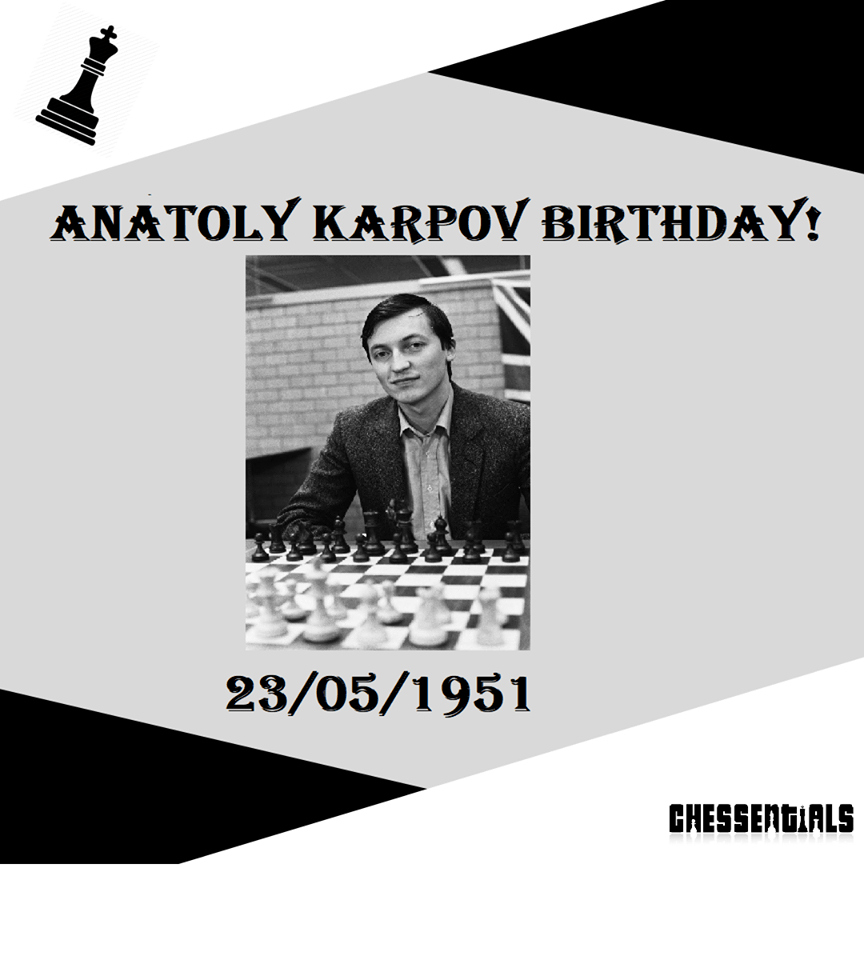“The boy has no clue about chess, and there’s no future at all for him in this profession”
Once upon a time, back in 1963, a talented 12-year-old boy was accepted in the prestigious Botvinnik school. He had learned how to play chess when he was 4 and had become a Candidate master already at the age of 11. Even though Botvinnik was dismissive of his capabilities (not uncustomary for the patriarch), he started working with him and the boy made rapid progress under his tutelage, becoming the Soviet National Master in history in 1966 at the age of fifteen (and tying Spassky’s record).
The name of the boy was Anatoly Karpov.
Despite patriarch’s prediction, the boy did indeed have a bright future in chess and went on to become one of the greatest players that ever lived.
Already at the end of 70s, he announced the storm, by winning World Junior Championship in 1969 (with 10/11!) and then tying for 4th place in the 1970 Interzonal and winning his grandmaster norm.
But he didn’t stop there. Even though he remarked that the 1972-1972 is “not his World Championship cycle”, he beat Polugaevsky, Spassky and Korchnoi in Candidate matches 1, qualifying for the World Championship match against Fischer in 1975.
A match that never took place – which probably harmed Karpov more than it benefited him. Not only would such a match have a tremendous impact on his development as a player. But the broad chess public would not think his title was not deserved. 2
Those acquainted with chess history know that this was far from true. As if he wanted to prove anybody he is a worthy champion, over the course of next 10 years, Karpov would play in almost every elite chess tournament, winning the majority of them and setting a record for consecutive tournament victories. 3. For 10 long years, Karpov was the most dominant player on the planet.
But then Kasparov appeared and subsequently dethroned him.
Yet, people tend to forget it wasn’t a whitewash. The matches were extremely hard fought. Two times it all came down to the final game (in 1985 and 1987 matches). For 5 years, Karpov was an eternal challenger (not without FIDE’s help) and a constant threat to Kasparov’s legacy. Throughout the second half of the 1980s, a battle of two equals was fought in which one player was “slightly more equal” than the other.
But even after the last match in 1990, Karpov continued playing successfully. After Kasparov’s schism in 1993, he became FIDE World Champion and held the title until 1998. This is also a period when he won Linares 1994 in arguably the best tournament performance of all time.
In any case, Karpov was a fantastic player, yet he is often underestimated. I think it partly has something to do with his positional style with which he would strangle his opponents like a boa constrictor – it was much less attractive then Kasparov’s dynamism.
But I think it also had something to do with non-chess related factors. Western public is influenced by the fact he was a “true Soviet” to the core, favored by authorities, which reported directly to Brezhnev. Who even in his advanced age supported the annexation of Crimea and lamented about the demonization of Putin in Western media.
I am pretty sure he would have been much more acknowledged if he were born, say in the United States, like Robert James Fischer.
But all politics aside, Anatoly Karpov remains one of the greatest chess players that ever lived.
And today he celebrates his 68th birthday.
Happy birthday to Anatoly the twelfth.
Cover photo from Douglas Griffin https://twitter.com/dgriffinchess/status/830024155663839233
(If you like posts as these, check our complete list of Chess Birthdays )

